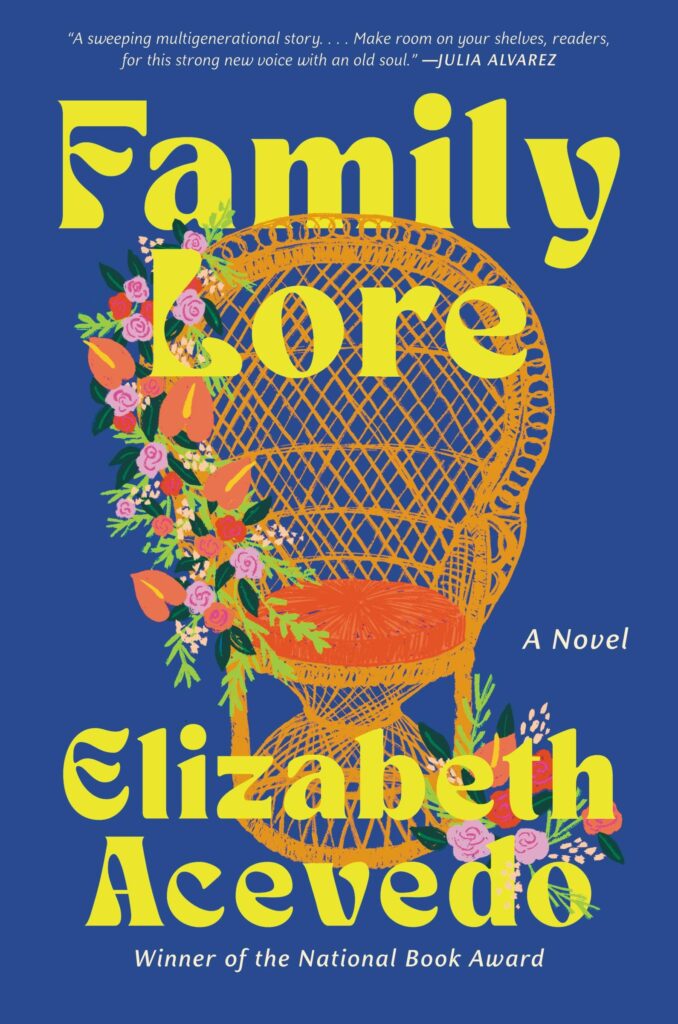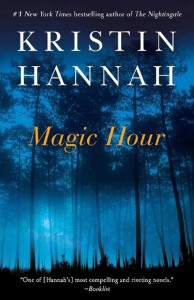
Seventy-year-old Flor decides to throw herself a living wake, alarming her three sisters because they know Flor has a special gift: she can predict when someone will die. They, too, have special gifts: Pastora can tell whether or not someone is telling the truth, and Camila, the youngest, creates herbal tonics and medicines that always heal.
The occasional narrator, Flor’s daughter Ona, has a magical vagina, and Pastora’s daughter Yadi has a mystical relationship with limes. The oldest of the four sisters, Matilde, doesn’t have a magical gift, but her salsa moves are beyond brilliant, and she loves deeply and loyally.
The first adult book by children’s author Acevedo weaves together the stories of these six women with a sure touch. This enchanted tale moves between New York and Santa Domingo, slipping through time, interleaving English with bits of Spanish. The Spanish was not a problem for me, though I don’t speak the language, because the context clues were sufficient.
Reminding me of early Isabelle Allende, like The House of Spirits, the novel delivers a feast. Little by little, Acevedo fills in the lives of these women, their care for each other tugging against their push for independence.
Normally I struggle with multiple narrators and time jumps, but here I didn’t have any trouble keeping the characters and timelines straight. However I did look back at the list of characters at the front of the book for about the first quarter of the book, which I wouldn’t have been able to do if I’d be listening to the audiobook. Also, I wouldn’t have had the formatting that signaled time jumps, so I might have gotten confused
Some of the members of my book club did indeed find the book confusing. They also struggled to get into the characters, perhaps because of the difficulty of tracking so many characters.
One member of my book club noted that she was surprised by what the sisters didn’t know about each other, but secrets within a family are not that uncommon. And actually for a couple of us, seeing the minute changes in their relationships was part of what we enjoyed about the book.
I found the writing joyous and fresh. For example, introducing the story of Flor and her husband: “Pedro had approached her like a strong breeze through an open doorway, unexpected, soft on the skin even if it did scatter a few things to the ground.” 318
When the sisters turn to Yadi, Pastora’s daughter, to look up information on the internet: “The younger generation brought new ways of doing things, these new inventions, and the hermanas touched their fingers to gadgets, or their tongues to new words, and sewed the technology into the fabric of their lives the way one embroiders lace.” 274
I was also intrigued by the way the women went back and forth between New York and Santa Domingo, each city giving them something the other couldn’t. So different from the usual emigrant narrative of longing to return home and not being able to, or of not wanting to return ever. I also saw this in Junot Diaz’s The Brief Wondrous Life of Oscar Wao. Discussing this idea sent my book club into the history of the Dominican Republic to look at political changes in that country and whether they related to the waves of immigration.
The relationship between these women—and they with their men—are nothing like what I’ve experienced. Well, now I have, thanks to Acevedo. If you want to understand what a family can be, this is the book for you.
Sisters, sisters! What novel can you recommend about sisters?
